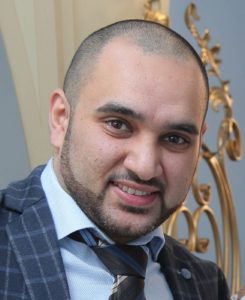Refugee voices should be heard – conference told
 More refugee voices need to be a part of policy discussions on refugee issues, a conference of Australian and international refugees, refugee advocates and analysts in the field has heard.
More refugee voices need to be a part of policy discussions on refugee issues, a conference of Australian and international refugees, refugee advocates and analysts in the field has heard.
The need for governments, NGOs and other stakeholders to make space for refugees to exert their own agency was central to discussions at the Refugee Alternatives Conference held at Melbourne University this week.
Refugee Community Advocacy Network representative Mr Om Dhungel told the conference that refugee representation was about giving a voice to some of Australia’s most vulnerable people.
“Each group has different challenges, needs and aspirations and having a voice is important,” Mr Dhungel told the conference.
“Refugees often have no passports or identity documents, so having a voice makes them visible, it is a validation of who they are as individuals and communities,” he said.
Mr Dhungel said there was a need to redefine the concept of refugee strengths.
“Initial support for refugees is important but it can become a barrier in the long term,” he said.
Mr Dhungel said in some cases refugees could become dependent through a traditional needs-based approach.
“We need to move to a more strengths-based approach where we work with people to realise their potential,” he said.
“And this is why it’s important that people with lived experience provide policy input into settlement practice and how it can be done,” Mr Dhungel said.
He said achieving this was about collaborating.
“Service providers, government, civil society as well as people in communities with lived experience can produce local and global solutions,” Mr Dhungel said.
“I call this a bottom-up approach and it’s about long-term capacity building of and the promotion of social capital,” he said.
The conference heard that there were 57 people with lived experience speaking at the conference, an affirmation of the importance of personal stories.
The conference also heard from Osama Salem, a refugee protection and a humanitarian worker who started his career in refugee protection team with UNHCR.
He has many years’ experience in the field, as well as at the headquarters of many organisations that work on the protection of refugees.
Osama was part of a group of refugee leaders that has founded the Network for Refugee Voices (NRV) which has become an important voice in the consultations of the global compact on refugees.
Laurie Nowell
AMES Australia Senior Journalist












